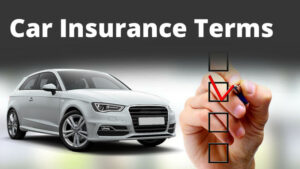 Courtesy of iii.org
Courtesy of iii.org
Whether you own or lease a single business car or an entire fleet of commercial vehicles, you’ll need to purchase commercial auto insurance. Your insurance professional can help you weigh your risks and evaluate coverage options.
But even with insurance in place, you’ll want to take steps to prevent accidents and protect your employees and vehicles. Your business can reduce the chance of an accident by establishing and enforcing the following practices and policies.
Hard-and-fast driving rules
When it comes to the safety of employees and the protection of your vehicles, you should set certain firm driving rules that must be followed at all times, including:
- Mandatory seat belt use – Nearly every state has a seat belt law. Seat belt use helps prevent deaths and limit the severity of injuries in vehicle accidents. There is no reasonable excuse for not using a seat belt.
- Zero tolerance for intoxicants – Even one alcoholic beverage can impair a driver’s reaction time. Employees should never drink or use other intoxicants prior to using business vehicles.
- No cellphone use – Distracted driving is a leading cause of accidents, and cellphone use while driving is banned in some states. Prohibit employees from taking calls or texting while driving.
Vehicle use guidelines
Other rules may be more flexible, but you should consider instituting policies and adhering to the following practices yourself as appropriate:
- Limit non-business use of vehicles – While some employees use the same car for work and personal use, generally limit business vehicle use to work-related travel.
- Slow down – Scheduling should allow sufficient travel time between meetings and assignments. Do not create such a frantic pace of work that employees are encouraged to speed. In addition to reducing the risk of accidents, driving the speed limit also will help control fuel costs.
- Lock and secure vehicles – Employees should always lock vehicles when on the job. Whenever possible, vehicles should be parked in secure, well-lighted areas.
Employee-focused practices to reduce vehicle risk
- Know your employees – Before hiring employees to drive company vehicles, check their driving record with the motor vehicle department for past infractions. Limit or ban driving by employees with a history of accidents or moving violations. Employees should also be required to report any accidents they have while not working. In addition, recognize that some personality traits—such as a bad temper—can raise the risk of auto accidents.
- Provide training – Employees who regularly drive work vehicles—or are taking on a new assignment requiring vehicle use—should be provided with drivers training. This course may just be a refresher for some, but it should cover key safety practices such as following distances and proper backing techniques.
- Recognize safe drivers – For businesses in which driving is central—such as a florist or a moving company—establish a program to recognize and reward safe drivers. You may also want to reward a department or the whole company for accident-free periods.
Responding to an accident
The above practices and policies can help minimize the risk to your business vehicles, but they cannot entirely prevent accidents from happening. If a business vehicle is involved in an accident, you’ll want to help your employee-driver respond appropriately and proceed with filing an insurance claim. The following practices and steps will help your business and the involved employee recover and get back to work.
- Establish procedures in the event of an accident – Employees using company vehicles should be trained what to do if an accident occurs. This includes not leaving the scene of an accident, contacting the police, and collecting information (license plate numbers, contact information, insurance information, etc.) from the affected parties and any witnesses. The accident should also be reported to appropriate personnel at work. Consider using the incident as an opportunity to educate all employees who drive company vehicles about what to do if they are involved in an accident.
- Contact your insurance professional and file a claim with your insurer – As soon as possible, contact your insurance professional to report the accident and begin the claims filing process. It’s especially important to work immediately with your insurance team if anyone has been injured in the accident. Follow the guidance of your insurer in a timely manner, such as getting estimates for repairs.
Remember too, that auto insurance claims are not limited to accidents. You may also need to file a claim if your vehicle is vandalized, stolen or damaged from an event other than an accident, such as fire or severe weather.

